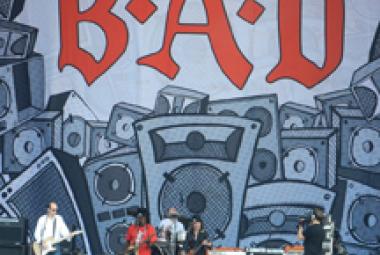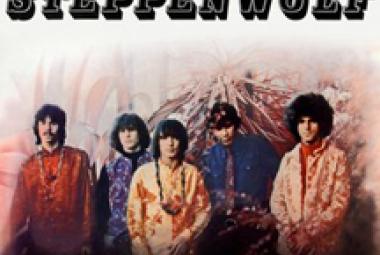The Graham Bond Organisation were a British jazz/rhythm and blues group of the early 1960s consisting of Graham Bond (vocals, keyboards, alto-saxophone), Jack Bruce (bass), Ginger Baker (drums), Dick Heckstall-Smith (tenor/soprano saxophone), and John McLaughlin (guitar). They recorded several albums, and further recordings were issued when the group’s members achieved fame in progressive rock and jazz fusion. The spelling of the band’s original name varied between releases, often depending on the intended audience. (More from Wikipedia)
During the 1950’s, Ginger Baker was a member of several of what were known in England as “trad jazz” bands, i.e., Dixieland jazz. Charlie Watts recommended Baker as the drummer for Blues Incorporated after he left the band. Ginger Baker crossed paths with lead vocalist, saxophonist and organist Graham Bond and bassist Jack Bruce; together with another alumnus of the band, saxophone player Dick Heckstall-Smith, the four began jamming together before enthusiastic crowds while performing with a band called the Johnny Burch Octet. Bond initially formed the Graham Bond Quartet with Bruce, Baker and guitarist John McLaughlin (an important figure in jazz fusion who performed on Miles Davis’s first gold record, Bitches Brew); when Heckstall-Smith joined up, the group was renamed the Graham Bond Organisation. It was in this period that Ginger Baker developed his signature drum solo, “Toad”.
* * *
In 1966, Eric Clapton met Ginger Baker; both men felt a little stifled in their band environment – John Mayall & the Bluesmakers and the Graham Bond Organisation, respectively – and Baker asked Clapton to join a band that he was putting together. Clapton agreed, but only if Jack Bruce was also included as the lead vocalist and bass guitarist; Clapton later said that Baker almost wrecked his car when he heard that. Jack Bruce and Ginger Baker were notorious for their volatility while in the Graham Bond Organisation together, including on-stage fights and sabotage of the other’s instruments. The two put aside their differences for the sake of the new band, but this probably sowed the seeds for Cream’s dissolution in barely two years’ time.
(May 2014)















